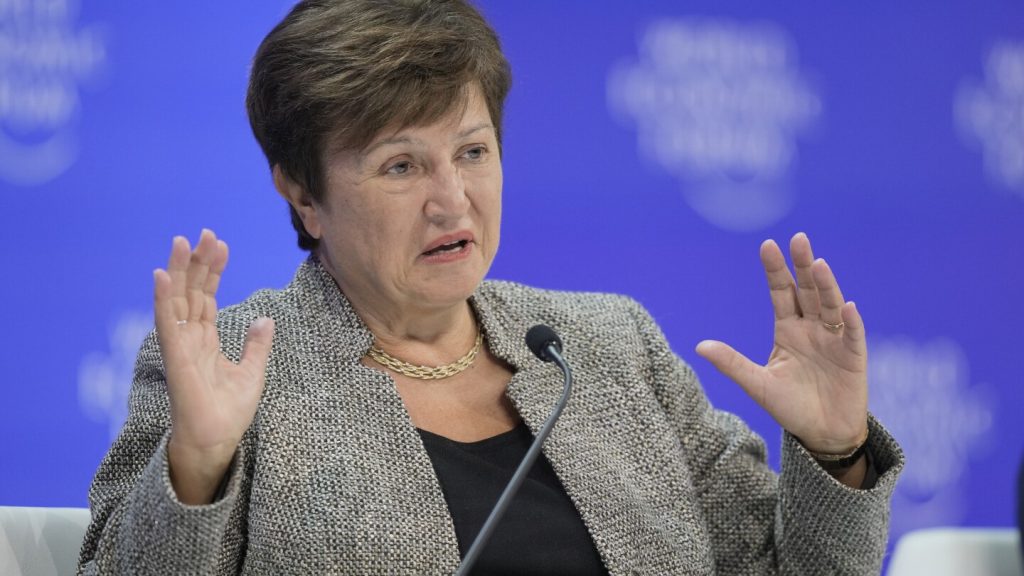Georgieva emphasized the need for countries to build fiscal resilience, especially in the face of ongoing crises. She highlighted the growing government debts around the world, which rose to 93% of global economic output last year. This increase was primarily due to the additional spending by governments in response to the COVID-19 pandemic. Georgieva urged countries to improve tax collection methods and prioritize public spending to ensure preparedness for future shocks. She stressed the importance of efficiently managing public finances to navigate the uncertainties of the global economy.
The IMF’s latest forecast predicts global economic growth of 3.2% for 2024, with a similar projection for 2025. While this represents a slight upgrade from the previous forecast, it is still below the historical average of 3.8% recorded from 2000 to 2019. The resilience of the world economy in the face of challenges like higher interest rates and conflicts in Ukraine and Gaza is noteworthy but does not negate the existing weaknesses. Georgieva pointed out the persistent issue of inflation in the United States, where economic growth has been robust but inflation remains a concern. The IMF’s projections indicate a cautious optimism about the recovery but also recognize the need for continued vigilance.
Productivity growth has been a key factor contributing to the sluggish global economic performance, according to Georgieva. She highlighted the challenges countries face in matching workers with technology efficiently and the impact of low interest rates on sustaining uncompetitive firms. Aging labor forces in many countries were also identified as a hindrance to faster economic growth. The United States was recognized as an exception to this trend, with better productivity gains compared to Europe. Georgieva credited America’s business-friendly environment and lower energy costs for its relative success. She suggested that other countries could learn from the US by reducing bureaucratic barriers and promoting greater workforce diversity.
Georgieva’s remarks underscore the importance of addressing structural issues within national economies to enhance overall productivity and economic resilience. She emphasized the need for countries to adopt policies that facilitate innovation, streamline regulatory processes, and promote workforce participation, particularly among women. The IMF’s assessment of the global economic outlook acknowledges the uncertainties and risks that persist, urging governments to prioritize fiscal management and long-term sustainability. The ongoing challenges posed by inflation, government debt, and sluggish productivity growth require coordinated efforts at both the national and international levels to foster sustainable economic development.
As the IMF and World Bank convene for their spring meetings, the discussions are likely to focus on strategies for navigating the current economic landscape while preparing for future shocks. The COVID-19 pandemic has highlighted the vulnerabilities of the global economy and reinforced the importance of resilience and adaptability. Georgieva’s calls for fiscal prudence and strategic investments reflect the broader emphasis on building robust economic foundations to withstand crises and uncertainties. The IMF’s projections for modest growth in the coming years underscore the cautious optimism tempered by the recognition of ongoing challenges. It remains to be seen how countries will respond to these imperatives and whether collective action will be taken to strengthen the global economy in the face of persistent risks.


